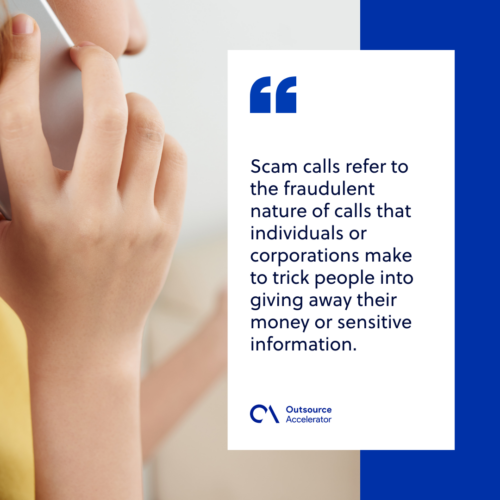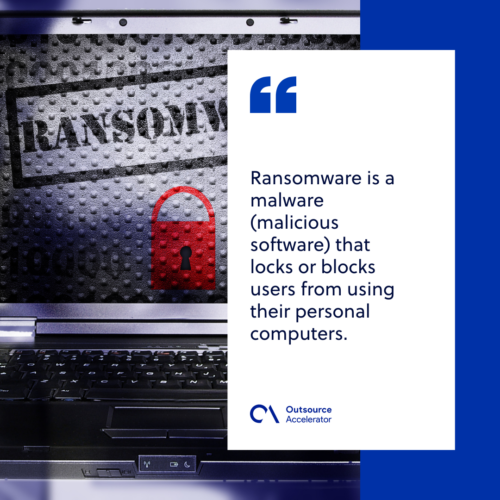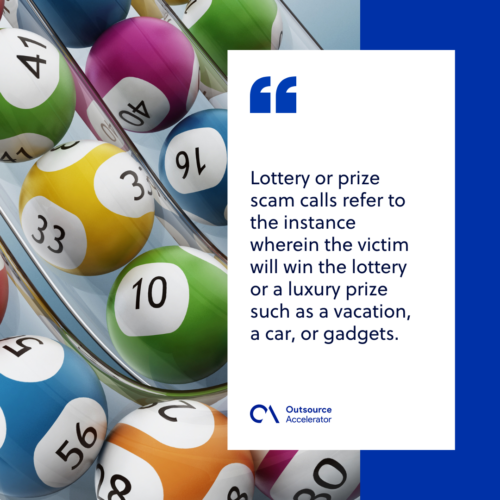7 Types of scam calls and how to avoid them this 2025

We’d all want to believe that there is good in people, but some really just take the opposite. From identity theft to thievery, scammers are notorious for targeting people from all walks of life.
Scam calls have been a topic since they became widespread within the telemarketing trend. The first fraudulent call was unidentifiable, but it’s still prevalent today.
In 2019, the Federal Trade Commission received 5.4 million consumer complaints about unwanted calls.
With the rise of call blockers, one would think that we’d be safe from these activities, but it’s more likely that they have advanced, too.
However, one surefire way to avoid getting scammed over the phone is to know the nature of the call. This is so they can stop the scammers before they can do anything.
What are scam calls?
Scam calls refer to unwanted calls made by an unknown or dubious contact. They are made by an individual masked as a “corporate representative” with a fraudulent intention of tricking people into giving away their money or sensitive information.
Scammers often downplay the situation as a routine call or even lie to the person they intend to victimize.

Where did scam calls originate?
Even with the advancement of technology today, it’s still hard to pinpoint where fake calls originate from. But as far as experts know, scam calls or fraudulent calls come from different countries from their intended victims.
This is to avoid detection and police jurisdiction from the countries they’re targeting. However, scam call centers are prevalent in India.
Are telemarketing calls scams?
It is safe to say that most telemarketing activities are not fraudulent calls. Legitimate telemarketers would reach out to their leads stating the purpose of the call while identifying themselves and the company they work for.
However, consumers should be wary of spam calls disguised as telemarketing calls. Despite its legal nature, telemarketing fraud can still exist, as discussed below.
When you experience one of them, always remember that legitimate businesses cannot ask for personal information through calls.
Telemarketing agents will never ask for any money or any sensitive data besides a name and basic information. If they ever miss a lead (e.g. not picking up, can’t be reached), they will leave a voicemail instead.
The first step in avoiding unwanted calls or spam calls is to know their types. Various types of these calls exist, such as the following:
1. Imposter scams
This call uses emotional manipulation and family ties to trick the victim into sending money to the person on the other end of the call.
How they do it:
Imposter scams often start out with a family member or a relative who is in trouble, often with the police, and they will state that they are being held at a police station with the right to bail.
At this point, the scammer will then pressure the victim into giving their bank details so they can post the bail.
2. Ransomware attacks
Ransomware is malware (malicious software) that locks or blocks users from using their personal computers. Users often get these from interacting with an application or a website that has been infected with ransomware.
How they do it:
Attackers will usually render the infected computer useless, only showing a phone number on the screen along with the instructions to call as soon as possible.
Victims will then call the number in hopes of getting rid of the malware. During the call, they will ask the victim to purchase gift cards and to dictate the code over the phone.
Gift cards are much harder to track once it has been used.

3. Phishing schemes
Phishing refers to the act of pretending to be a legitimate business and organization to get the victim’s information such as social security numbers and bank details.
Scammers use fake websites, emails, and fake calls to get the information they need with relative ease.
How they do it:
These often start with the “agent” calling about an issue with the victim’s account. The nature of these issues is pressing and involves fraudulent activities in regard to money, sending the victim into a panic.
The scammer will ask for information such as credit card details, bank information, full names, and social security numbers to create a fake identity to use for malicious reasons.
4. Telemarketing scams
These scam calls tarnished the name of telemarketing. Fraudulent activities are being done under the guise of marketing and/or selling a product or service over the phone.
How they do it:
Fake telemarketers will often call about a product or a service that they’re offering, coercing or pressuring the victim to purchase the aforementioned goods. The victim gives in and gives their information to the caller.
5. Lottery schemes
Lottery or prize scam calls refer to the instance wherein the victim will win the lottery or a luxury prize such as a vacation, a car, or gadgets.
How they do it:
The scammers will contact the victim saying that they’ve won a large sum of money or a prize for a nonexistent raffle. They will often hype the victims up in a state of euphoria to further cloud their judgment with the luxury price.
When the time finally comes, they will ask the victim for a security fee in order to pass on the price.

6. Tax scams
Tax scams are especially prevalent during tax filing season.
How they do it:
Individuals may pretend to be an official employee of the tax department and tell the victim that they have a dispute with their documents.
The fake call will be of an intimidating nature, often pressuring and stressing the victim more because of non-existent issues with tax.
Some even tell the victims that they have unpaid taxes and must pay so the police won’t be involved.
7. Security fee
This kind of fraudulent activity exists in the same nature as the lottery scam as it involves an individual telling the victim that they help someone to move money from an offshore source.
How they do it:
Also known as the “Nigerian Prince” scam, the call will be from someone posing as royalty from another country. He is looking for someone who can help him move his so-called riches to the country by using a local bank account.
In exchange for assistance, the “prince” will promise a large sum of money to the victim once his money is successfully transferred.
In reality, the victim just gave their bank account details and they will never see any penny.
How to avoid scam calls
There is still a way to stop spam calls for your safety. Here are some measures you can take:
Verify legitimacy
One way to avoid falling for this is to verify the legitimacy of the call.
Ask about personal details that only the real person would know and if they can’t answer it, they’re most likely running fake activities.
Real lottery and raffle representatives will never ask for any fee for the winners to receive their winnings. Another telling point is that if you’ve never participated in any lottery or any raffle draws, then any activities pertaining to these are already suspicious right off the bat.
Avoid suspicious third-party apps
Do not access any suspicious links or download any third-party apps from unsecured sources and websites.
If the computer still ends up getting infected with ransomware, don’t call the number, and don’t engage in a scam call. Contact a trusted technical support representative for assistance.
Block spam calls
One of the most basic ways to avoid these types of calls is to be wary of unknown callers.
To avoid unwanted calls, consider using call blocking apps designed to help block spam calls and prevent phone scams. Many cell phones now come with features that allow blocking unwanted calls or enabling call blocking for unknown numbers.
You can also use caller ID to identify and block calls from suspicious numbers.
Take note of their details
If you ever accidentally take a fake incoming call, hang up immediately, and never give out any information. Note the caller’s name and phone numbers then report it to the institution they mentioned.
If allowed, you can do a reverse number lookup or spam lookup of their number and names online.
Report unwanted calls
Don’t just block unwanted calls. You can also report these details to agencies that handle these issues. In the US, the Federal Trade Commission’s Report Fraud site is your guide.
Alternatively, you can sign up for your National Do Not Call registry to help stop sales calls from occurring. Coordinate with your phone service provider on registering or knowing about other call-blocking services you can opt for.
Why scam calls are still prevalent in the internet age
Fraudulent calls have been somewhat a business for some people—an article by the NY Times has covered the call centers where the dials are from.
One of the reasons why these activities are still prevalent in this day and age is because many people are still unaware of how things work in the digital world, take an article from BBC titled “Why so many people fall for scams.”
Protect your mobile phone number by not sharing it publicly, as this can help reduce spam calls and prevent illegal calls. It seems like staying vigilant for any unknown callers will be the best possible solution for now.







 Independent
Independent




